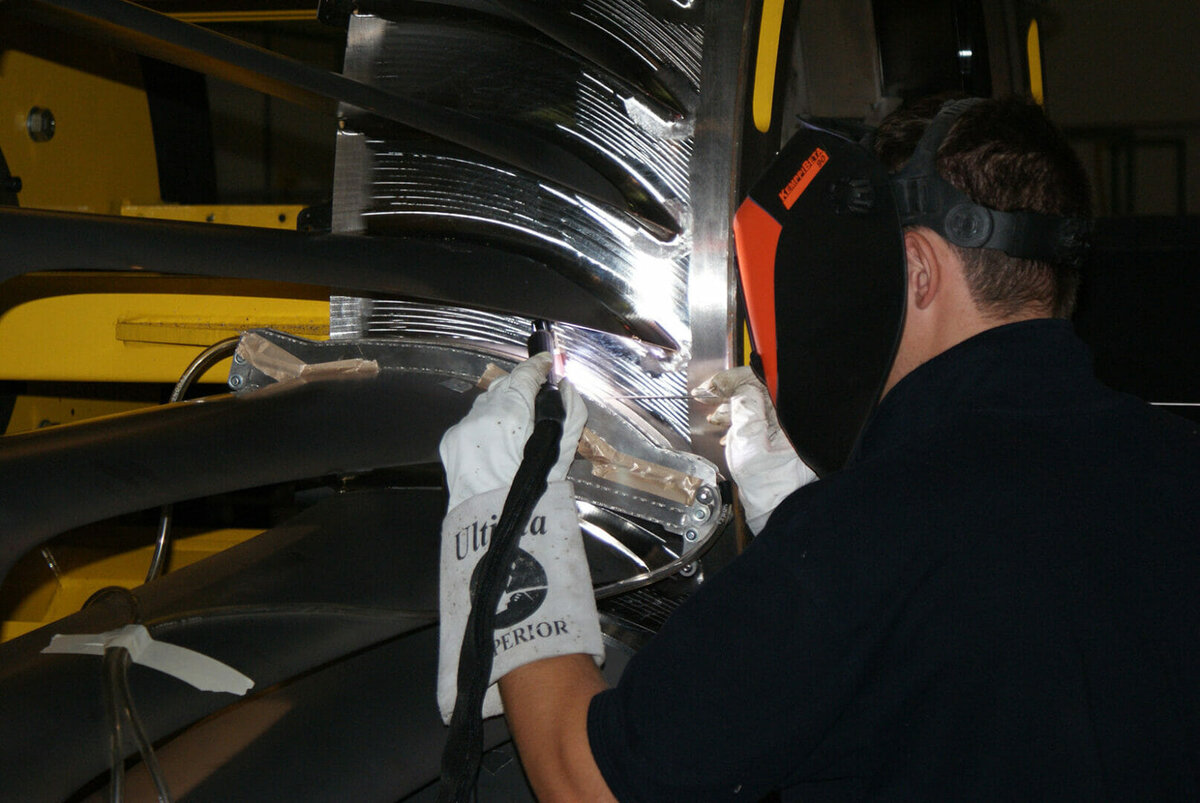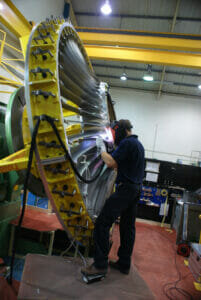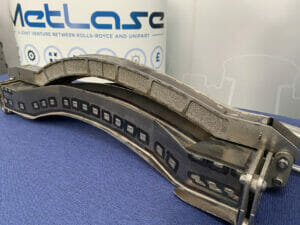The aerospace sector can now call upon a new welding solution that reduces reworks considerably thanks to the efforts of a Sheffield-based tooling and intelligent fixturing specialist.
Engineers at MetLase took just two months from the major aerospace engine manufacturer’s initial enquiry to design and manufacture a customised Gas Shield for controlling argon delivery within shielded welding, preventing the age-old problem of oxygen or water vapour affecting the quality of the weld.
Using precision laser cutting technology and patented joining methodology, the Rotherham-based company identified an engineering grade metallic foam that dissipates the argon gas in a precision manner, providing an almost perfect inert atmosphere for the process.
It also developed a digital enhancement, which has the ability to provide constant information and alerts prior to the welding taking place.
“This was a significant challenge for our team, but one we relished as it also gave us the opportunity to ‘prove-out’ some new joining techniques we had developed, whilst integrating digital technologies into the mix that deliver a game-changing solution to the welding process,” explained Jon Ham, MetLase’s lead engineer on the project.
“The aerospace industry has stringent quality standards to meet and we had to find an answer that would produce welding performance better than 10 parts per million and could be used across numerous civil engine variants.”
He continued: “Innovation and pushing the boundaries of engineering is what we do best and I’m delighted to report that our Gas Shield provides a significant reduction in welding rework, which saves considerable time and cost.”
MetLase, which is a joint venture between Unipart and Rolls-Royce, is now looking at ways where it can customise the solution for other aerospace customers, with the firm’s standardised manufacturing process meaning it could take just two weeks to provide a bespoke ‘shield solution’.
The introduction of sensors in the system is another example of how the company is keen to embed digital technology into more mainstream manufacturing techniques to deliver digestible and, importantly, actionable data.
One example is the ability to understand how equipment is performing by continually measuring properties and monitoring sensor outputs so earlier positive interventions can be made.
Richard Gould, Business Development Manager at MetLase, commented: “Our digital products, which currently include Digital Gauge, Smart Bench and Smart Cell, have to deliver bottom-line benefits to our clients, who operate in the automotive, aerospace, construction and renewables sectors.
“This involves taking traditional manufacturing principles focusing on assembly, bonding, measuring, workholding and assembly workstations, and exploring how we could digitise them in a way that would allow them to provide their core function whilst also gathering data.
“For us, digital manufacturing is not a standalone entity. Instead, it should be a critical aspect of the process and operation, and it should revolve around data and, specifically, digestible, actionable data.”
MetLase is hosting a number of Manufacturing Masterclasses to help UK industry embrace new processes and technology. All of the webinars are free to attend and the next one takes place tomorrow at 3pm and addresses Welding and Joining – the rapid, accurate manufacture of bespoke fixtures.
More details on all of the webinars can be found by visiting https://www.metlase.com/webinars/
- SONY DSC






